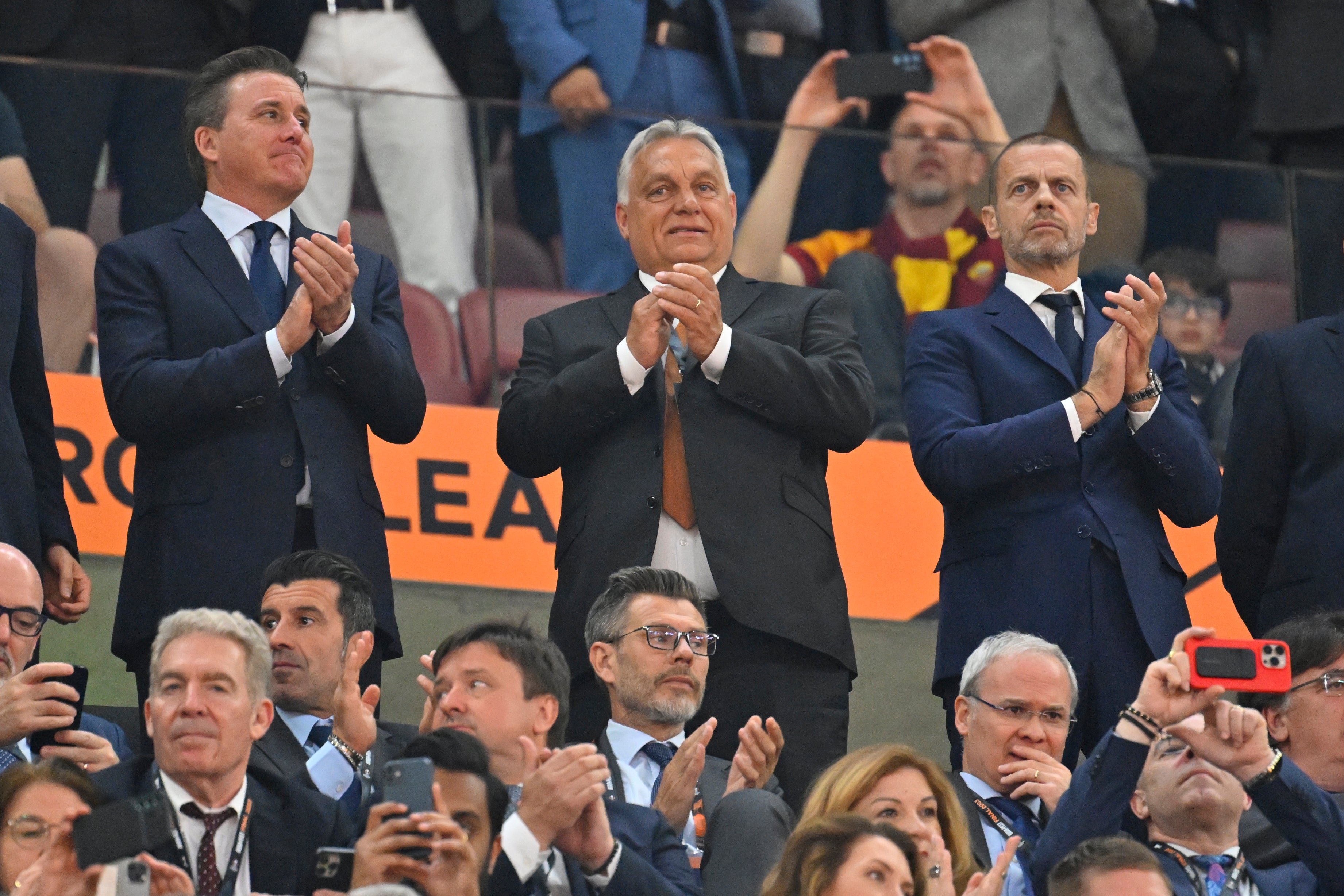Hungary's Orbán to host Turkish, Serbian and other leaders alongside world track championships
Hungarian Prime Minister Viktor Orbán will hold bilateral meetings in the coming days with the leaders of Turkey, Serbia, Qatar and a host of Central Asian nations, a sign of the European country’s continuing drift toward the Eastern sphere of influence

Your support helps us to tell the story
From reproductive rights to climate change to Big Tech, The Independent is on the ground when the story is developing. Whether it's investigating the financials of Elon Musk's pro-Trump PAC or producing our latest documentary, 'The A Word', which shines a light on the American women fighting for reproductive rights, we know how important it is to parse out the facts from the messaging.
At such a critical moment in US history, we need reporters on the ground. Your donation allows us to keep sending journalists to speak to both sides of the story.
The Independent is trusted by Americans across the entire political spectrum. And unlike many other quality news outlets, we choose not to lock Americans out of our reporting and analysis with paywalls. We believe quality journalism should be available to everyone, paid for by those who can afford it.
Your support makes all the difference.As millions of viewers around the world focus on Hungary while it hosts the year's largest international sporting event, its nationalist prime minister will receive the leaders of Turkey, Serbia, Qatar and a host of Central Asian nations in a sign of the European country's continuing drift toward the Eastern sphere of influence.
Prime Minister Viktor Orbán, a self-proclaimed proponent of “illiberal democracy” who is characterized by an aggressive stance toward his Western partners, plans numerous bilateral meetings in the coming days as the capital, Budapest, hosts the 2023 World Athletics Championships.
The nine-day track and field event will be the backdrop for talks with the Emir of Qatar and the presidents of Turkey, Azerbaijan, Kyrgyzstan, Uzbekistan and Turkmenistan, as well as leaders from the Balkan nations of Serbia and Bosnia.
In an interview Friday with state radio, Orbán described the leaders — many of whom have overseen democratic decline in their own countries — as Hungary's “political friends,” and said the athletics championships would provide a forum for the bilateral meetings as well as talks with business people from around the world, including China.
“If there's a big world event, then the given country invites its friends,” Orbán said Friday, adding that such events are “a more or less covert series of diplomatic meetings.”
The lineup of guests, devoid of any leaders from Hungary's allies in the European Union and NATO, reflects Orbán's push to increase diplomatic and political cooperation with autocracies in the Balkans and Asia. In power since 2010, Orbán has implemented an “Eastern opening” diplomatic strategy, which relies heavily on partnerships and trade deals with countries like Russia and China.
Uniquely among its neighbors in Central and Eastern Europe, Hungary has maintained close ties with Moscow since the invasion of Ukraine in February 2022, increasing shipments of Russian gas and oil and refusing to support Ukraine with weapons or allow their transfer across its shared border.
This stance — as well as years of alleged rule-of-law abuses and democratic backsliding — has largely isolated Hungary among its European and American partners, resulting in the freezing of billions in EU funds and sanctions from Washington.
Partnerships with countries outside the EU and NATO, therefore, have received increased emphasis. In a news conference Friday, Hungarian Foreign Minister Peter Szijjarto said the topic of most of Orbán's meetings this week would focus on securing natural gas supplies to Hungary from Qatar, Azerbaijan and several countries in Central Asia.
But Orbán's most high-profile meeting will be with Turkish President Recep Tayyip Erdogan, with whom he will discuss security, defense and economic cooperation, according to a statement from his office.
Turkey and Hungary remain the only NATO members not to have ratified Sweden's bid to join the military alliance as over a year of delays have frustrated many NATO allies. Hungary's government has said it will revisit the issue during the next parliamentary session scheduled for the end of September.
Hungary's government did not provide any further information on the expected contents of Orbán's upcoming talks, and did not respond to a request for comment.
Orbán will also meet with Milorad Dodik, the pro-Russian leader of Republika Srpska, a Serb entity within Bosnia and Herzegovina.
Dodik, who has openly advocated for separating Bosnian Serb territories from the rest of Bosnia and joining them with neighboring Serbia, was sanctioned by the United States last year for “corrupt activities” that threaten to destabilize the region. Four other Bosnian Serb leaders were also sanctioned in July.
Speaking on Friday, Szijjarto condemned the sanctions, calling them “very serious Western efforts to negate the democratically elected leaders of the Bosnian Serb community.”